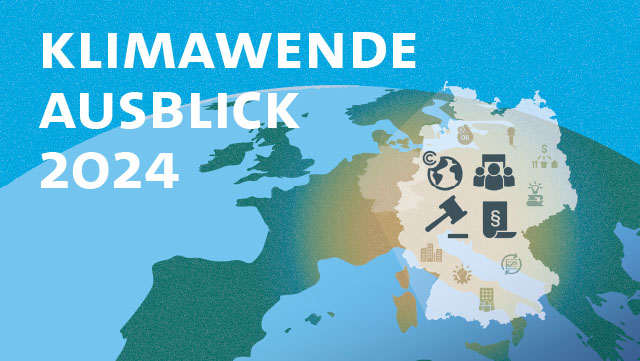Climate Transformation Outlook 2024
Hauptaussagen in Kürze
- A “climate transition society” requires not only technological innovations and a decarbonization of the economy, but also transformed production and consumption practices, a changed role of the state, and a strong civil society.
- Achieving climate neutrality by 2045 does not seem plausible at present in light of existing political and legal measures and taking into account foreseeable political developments. emission reductions achieved so far are often not secure, and the political scope for investment in Germany and Europe is tightly constrained by strict fiscal and debt rules.
- Following the adoption of overarching goals and key political and legal instruments, the climate transition is entering a new phase in which an increase in implementation conflicts is to be expected.
- The preliminary analysis of four social drivers in this study shows broad and active support for the climate transition. This broad resonance of climate policy also exists for environmental issues, despite an observable social polarization.
- However, the partial analysis also shows a reduction in the scope of civil society activities due to legislation, police enforcement, and financial constraints (stringing spaces). This weakens the societal support for the climate transition.
- The analysis also shows cross-driver interactions, for example between climate litigation, climate protests, and climate policy, through which the positive dynamics of individual drivers reinforce each other. Such interactions could be harnessed even more effectively for the transformation in future.

